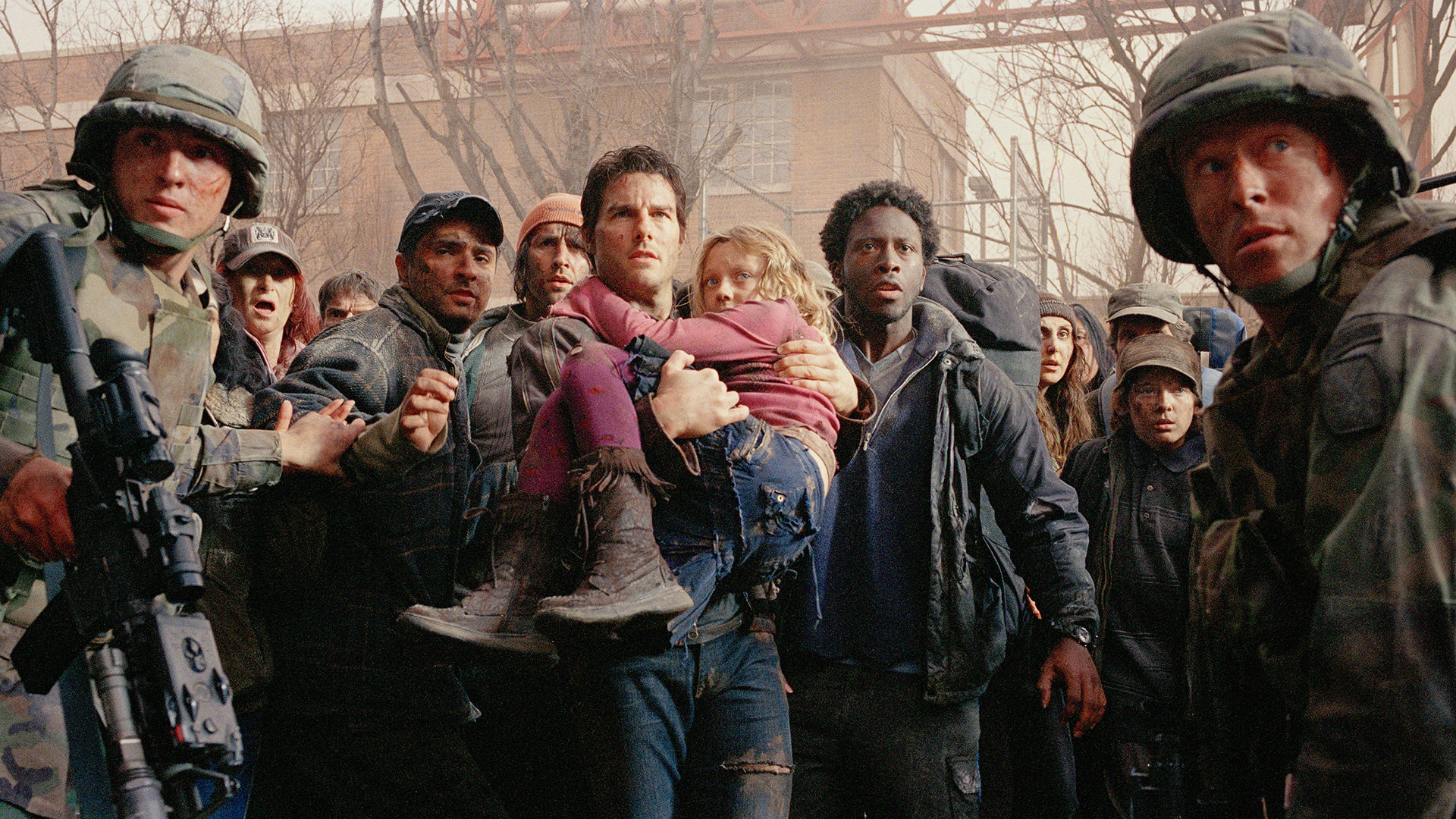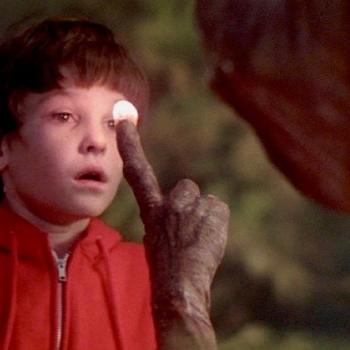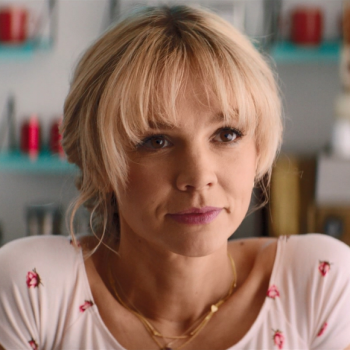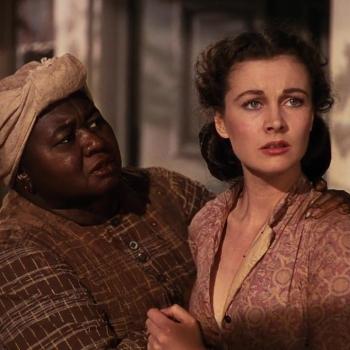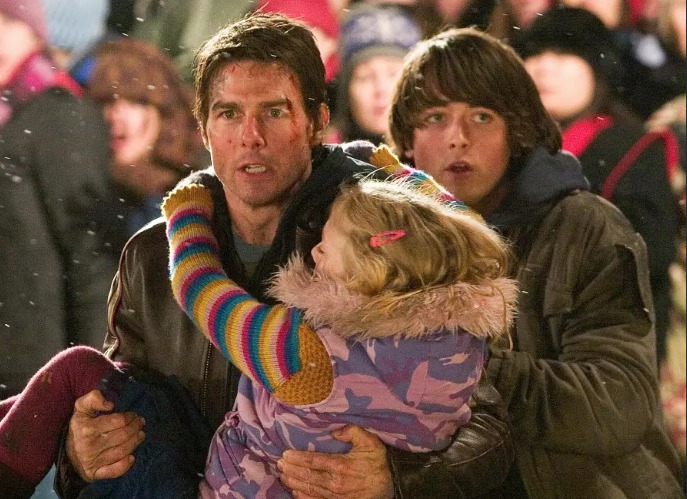
There was something like a sixteen-year gap between when I was first traumatized by Steven Spielberg’s 2005 adaptation of War of the Worlds as a kid and when I finally revisited it within the last year or so. And what stood out to me most with this recent revival is the way that the film never really left me.
There was very little to “rediscover,” as it were, because I found that I remembered almost all of the film down to some very minute details. The blaring sirens of the tripods as they vaporized entire crowds, the sight of that one dude’s hands bleeding as they cut into glass while tearing away the windshield of Tom Cruise’s car, the way you could see the red weed sprouting on the walls of Tim Robbin’s basement in real time. It’s a viscerally affecting, borderline traumatizing movie, subjecting the audience to a sense of dread that never really leaves you.
I see the film most often read as America processing 9-11, which I have to think was at least part of Spielberg’s intent given how specific some of the filmmaking choices are (like setting the initial alien attacks, at least those the audiences sees, in New York City) but I think that the film also speaks to a standing level of dread that feels kind of part and parcel to mortality.
The movie follows this thought process with a very basic tension: can this family make it through this terrifying ordeal? For that matter, can any family expect to make it out in a world that feels like it is falling apart? What can parents do to keep their families safe?

Before the invasion begins, Ray constantly tries to skirt by any true interactions with his kids by deflecting with snarky quips. Even the parental responsibility of providing food for his kids is reduced to “order something, I’m going to sleep. I work for a living.” Ray starts the film basically coasting as a parent only to discover that the threats over his kids are very real. There is nothing casual about being the last line of defense for these kids.
Before the film is over, Ray will have to learn not only how to keep his kids safe, but how to soothe their anxieties, and how to show that these kids have someone who will fight for them. Ray’s most impressive strides as a father in this film don’t necessarily come from him taking down an alien ship with a grenade, but from trusting his kid to drive the car or teaching himself a lullaby for his daughter.
Some have taken issue with the borderline deus ex machina fashion in which the film resolves many of its plotpoints, especially the way the family is reunited at Grandma’s house at the end. The last we saw of Robbie had him running straight into a fireball, yet he’s somehow safe and sound by the end. A more traditional hero’s story might have Ray break into the alien ship to rescue his son through some heart-racing action sequence that also somehow thwarts the entire alien invasion effort, but this film doesn’t seem interested in negotiating the alien threat through traditional hero’s story action-fare. And so on one level, it is narratively unsatisfying to have that plotpoint seemingly retconned to give this film some semblance of a happy ending. But herein also lies the film’s most impactful insights.
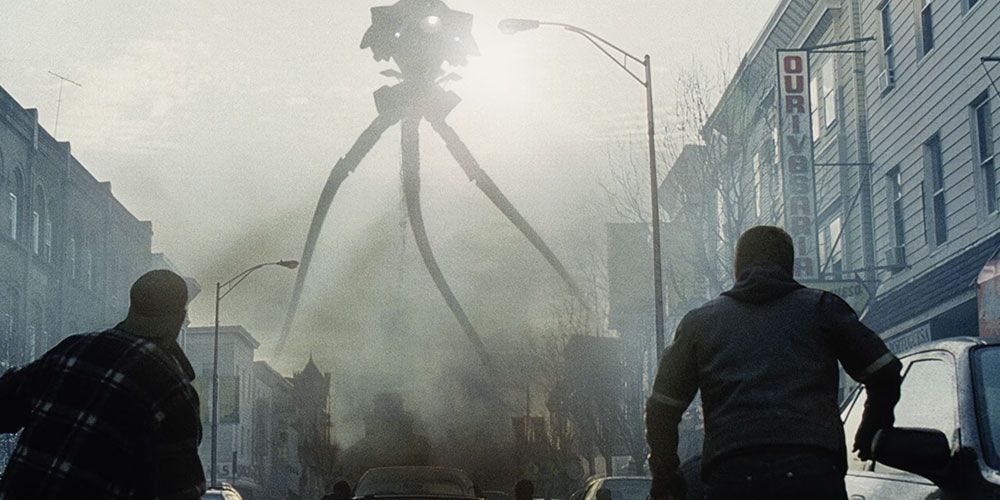
The absence of control is kind of the running theme through this movie: it is beyond humankind’s abilities to defeat this threat, and many of the characters who express vengeful fantasies against the aliens are reprimanded or killed off. The aliens end up being defeated not by tanks or missiles but by germs, something humans certainly weren’t planning on weaponizing against the enemy. “Defeating” the bad guy was never a viable option. The only course of action that has led to anything like success has been simply keeping your own family safe while accepting that things are ultimately out of your control.
Bringing it back to the plight of this family, we see Ray’s resolve and adequacy as a parent tested not just by the horrifying landscape in which he must keep his family safe, but also in the way his charges choose to behave within this landscape as individuals. Sometimes the hardest thing a parent can be called to do is let their children make their own choices and trust that forces just as beyond our control will somehow guide them safely back to us once the dust settles. This is also where you see the hand of God within this family, carrying them home even it feels like the world has torn them apart for good.
When disaster brings us to our knees, when circumstances are truly beyond our control, what can we do to keep our family together? Our best. And trust that God will do the rest.
